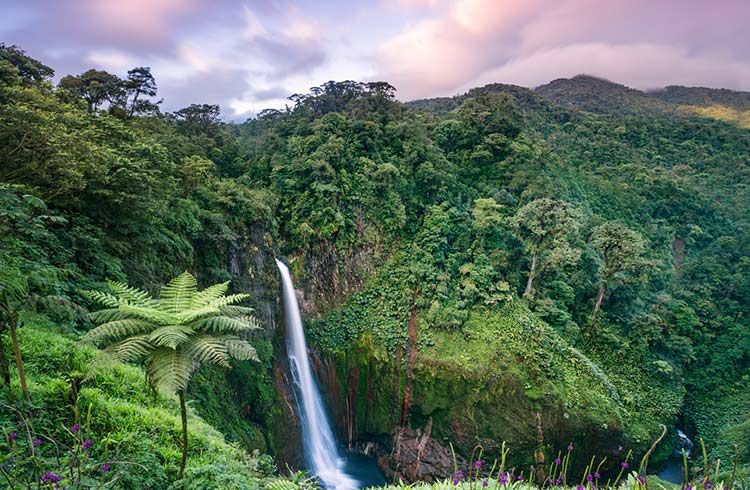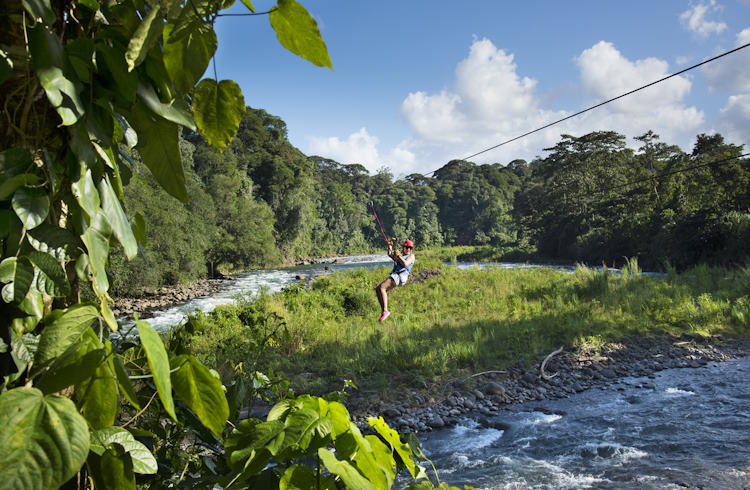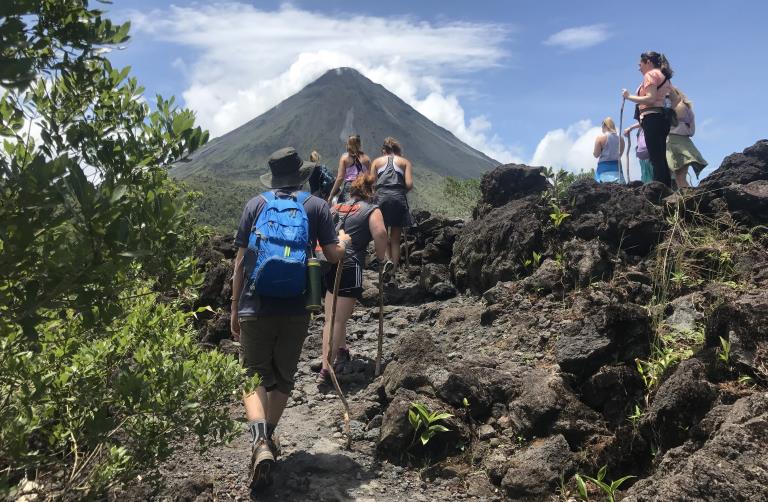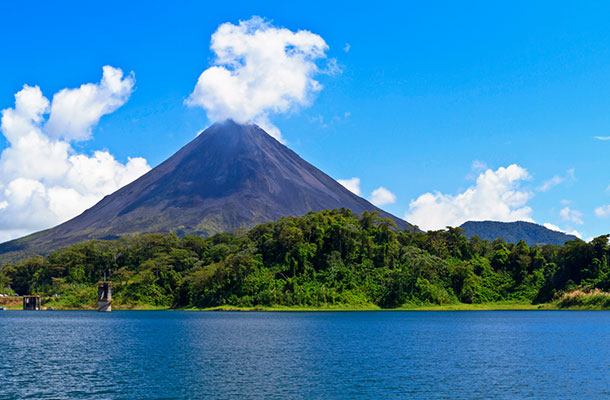Is Costa Rica Safe? Essential Safety Tips for Travelers
How safe is Costa Rica for visitors? Get our top travel safety tips, from places to avoid to violent crime, common travel scams and personal safety in Costa Rica.
 Photo © Getty Images/Matteo Colombo
Photo © Getty Images/Matteo Colombo
Costa Rica is top travel destination, celebrated for its eco-tourism, friendly people, and rich biodiversity. Yet, like any destination, it comes with its own set of safety considerations. Here’s what you need to know to stay safe while enjoying all that this beautiful country has to offer.
- Is Costa Rica safe for travelers?
- Recent crime statistics and trends
- Tips for avoiding crime
- Safety for families
- Safety for LGBTQ+ travelers
- Safety for women travelers
- Areas to be cautious of
- General travel safety tips
- Hiking and adventure safety
- Common travel scams
- Legal and police considerations
- Drug laws and crime in Costa Rica
Is Costa Rica safe for travelers?
Nestled between Nicaragua and Panama, Costa Rica is unique in Central America for not having a standing army and for maintaining political stability.
But it can also be a deceptively risky place to visit, particularly for travelers who have no experience of traveling in Latin America.
Recent crime statistics and trends
In the 2024 Global Peace Index, Costa Rica ranks 58th out of 163 countries, reflecting a slight decrease from the previous year but still much higher up the list than neighboring countries. However, in 2023, Costa Rica saw a sharp increase in the homicide rate (to 17.3 per 100,000 people), highlighting a rise in violent crime. Petty crime, such as theft and pickpocketing, remains a concern, especially in tourist-heavy areas.
Tips for avoiding crime
- Travel in groups. If exploring early in the morning or late at night, it's safer to go with companions.
- Secure your belongings. Keep valuables in a hotel safe and avoid displaying expensive items.
- Be cautious with public transport. Theft from overhead bins is common on buses.
- Be mindful on beaches and remote areas. Solo travelers, particularly women, are vulnerable on beaches at times when there are no others around.
- Use reputable services. Do your research and choose well-reviewed tour operators.
- Avoid camping on beaches. It’s best to find secure accommodation at a lodge or hostel.
- Theft from unattended vehicles is on the rise. Park in well-lit or guarded areas, always keep the doors locked and windows rolled up, and never leave anything of value in plain sight.
Safety for families
Costa Rica is a family-friendly destination with plenty of activities suitable for children and teens. Families generally face fewer safety issues than solo travelers due to the natural protection of traveling in groups and less involvement in risky behavior.
Safety for LGBTQ+ travelers
Costa Rica is known for its relatively progressive stance on LGBTQ+ rights. Same-sex marriage has been legal since 2020, and the country is generally accepting. However, public displays of affection might still draw unwanted attention in more conservative areas. LGBTQ+ travelers are advised to be mindful of local customs, particularly in rural settings.
Safety for women travelers
Solo female travelers should exercise increased caution. While many women travel to Costa Rica without incident, it's wise to stay in social accommodations, avoid isolated areas, consider joining group activities, and stay vigilant. The increase in sexual assault cases in recent years means that extra precautions are advisable.
Areas to be cautious of
Certain regions in Costa Rica are known for higher crime rates. While traveling, avoid or exercise extreme caution in:
- Quepos: The gateway town to Manuel Antonio National Park, with reports of robberies.
- Tamarindo and Jaco: Popular beach towns showing a rise in crimes targeting tourists.
- San Jose: Particularly the downtown area and parks after dark. Avoid neighborhoods such as Los Guido, Desamparados, Leon III, and La Carpio.
- Limón and Matina: Higher violent crime rates compared to the national average.
Planning a trip to Costa Rica? Find out how travel insurance can cover lost or stolen baggage, sudden illness, or other travel mishaps.
General travel safety tips
- Visit during dry season: December through April offers the sunniest weather for travel. The rainy season (May-November) is cooler and less crowded, but you should expect afternoon showers and occasional flooding.
- Hydrate safely: Tap water is generally safe except in Limón and Puntarenas. Consider bottled or filtered water for extra precaution.
- Avoid methanol contamination: Be wary of cheap alcohol, which may contain harmful methanol. Stick to trusted establishments and order bottled beer rather than mixed drinks.
- Stay food safe: Costa Rica has national standards in place for food safety, but it’s still good to be cautious. Avoid buffets where food is sitting out and food stalls with poor hygiene.

Hiking and adventure safety
Costa Rica offers abundant wilderness and adventure opportunities, but the rainforest can pose serious dangers, including venomous snakes. Always explore with a local guide or in groups, inform someone of your plans, and avoid hiking, trekking, or camping solo. Ensure your adventure provider has a strong safety record, especially for activities like zip-lining and rafting.
Common travel scams
- Tire slashing: Be cautious of “good Samaritans” who offer help after a flat tire. It’s safer to drive to a well-lit area to change your tire.
- Car rental insurance: Be aware of mandatory insurance costs not included in advertised rental prices. Ask for a full breakdown of charges.
- Money scams: Exchange money only at reputable banks and beware of street scammers.
- Passport theft: Keep your passport secure in a hotel safe and carry a photocopy of your passport and entry stamp.
Legal and police considerations
- Know your rights: If detained, you have the right to know the reason, contact your embassy, and consult with a lawyer.
- Respect photography rules: Avoid taking photos of official buildings and be considerate about photographing individuals, especially women and children.
Drug laws and crime in Costa Rica
Trafficking or selling any type of illegal drug is a serious offense in Costa Rica. If you are caught, you will be arrested and could face either a hefty fine or a lengthy prison sentence. You may meet locals who will offer to sell you drugs, usually marijuana. If you buy it, do so at your own risk; marijuana is illegal in Costa Rica, but personal possession has been decriminalized.
For more up-to-date information and travel tips, keep an eye on local news and travel advisories.
Related articles
Simple and flexible travel insurance
You can buy at home or while traveling, and claim online from anywhere in the world. With 150+ adventure activities covered and 24/7 emergency assistance.
Get a quote

No Comments